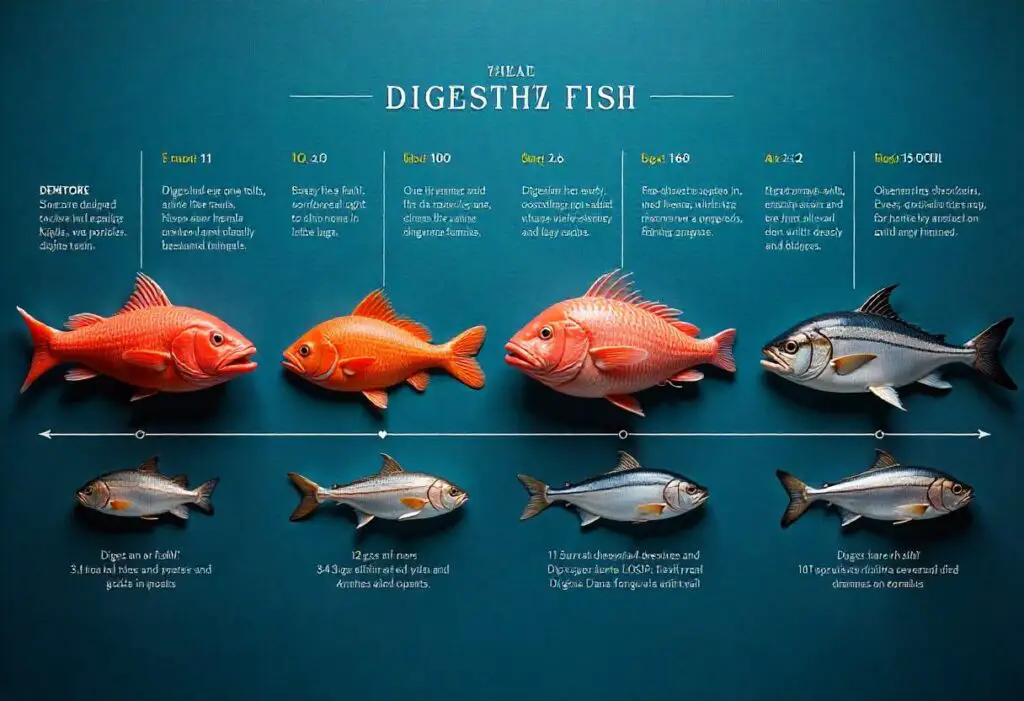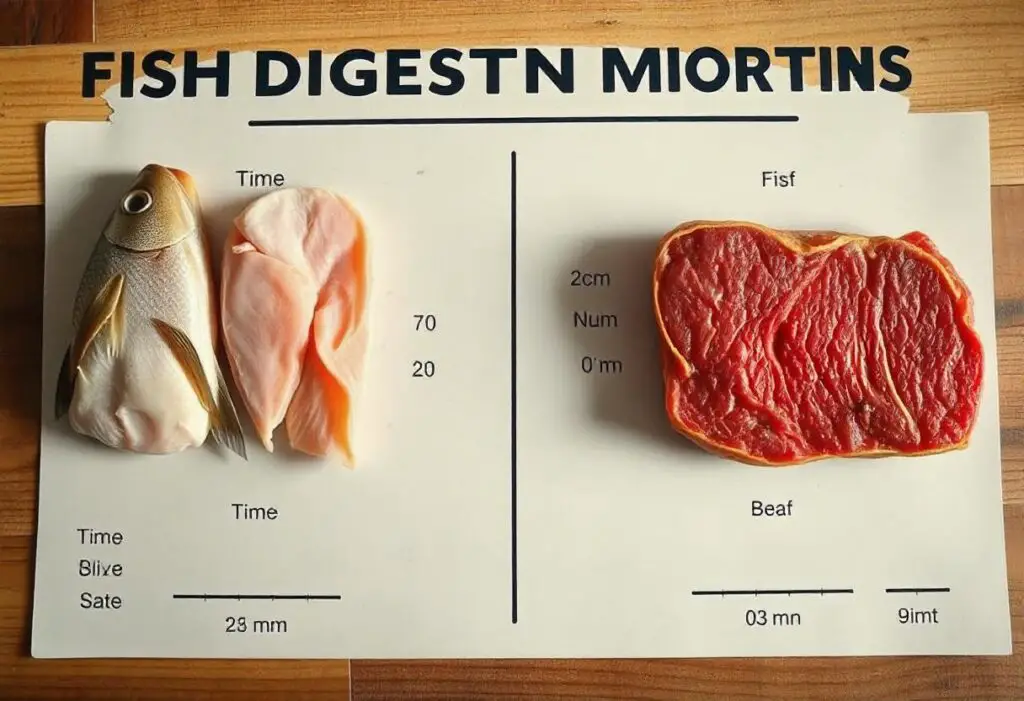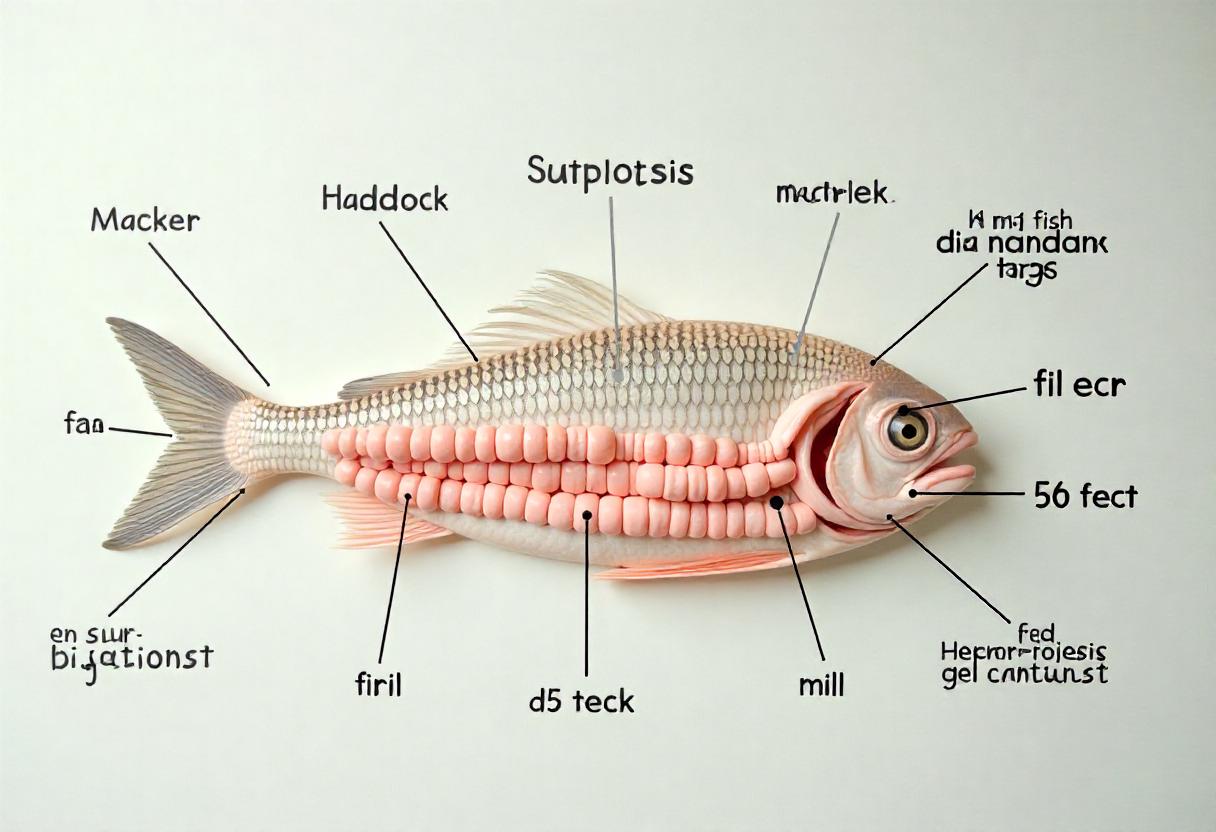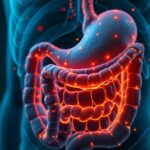How Long Does It Take to Digest Fish? A Comprehensive Guide? When it comes to maintaining optimal health, digestive health is often overlooked despite being essential for overall well-being. Fish, as one of the healthiest sources of protein, is known for being light on the stomach and packed with essential nutrients. But how long does it really take to digest fish, and what factors influence the speed of digestion? In this comprehensive guide, we will not only delve into the digestion process of fish but also explore how different types of fish, preparation methods, and personal health factors can alter digestion time. By understanding how fish interacts with your digestive system, you can make better dietary decisions that optimize digestion and overall health.
Understanding Digestion: The Basics How Long Does It Take to Digest Fish?
Before we dive into specifics about fish, it’s important to first understand how digestion works. Digestion is the process by which the body breaks down food into its basic components so that nutrients like proteins, fats, vitamins, and minerals can be absorbed and utilized. The digestive process starts as soon as food enters the mouth and continues all the way through the gastrointestinal tract.
The digestive system consists of several organs working together, including:
- Mouth: Where food is broken down mechanically through chewing and chemically through saliva.
- Esophagus: The tube that moves food from the mouth to the stomach.
- Stomach: Where food is mixed with digestive enzymes and acids to break it down further.
- Small intestine: The primary site of nutrient absorption.
- Large intestine: Where water is absorbed, and waste is prepared for elimination.
For fish, the digestive process is relatively quick compared to other meats due to its lower fat content and softer protein structure. On average, it takes between 2 and 3 hours to digest fish, but this can vary depending on several factors that we will explore in detail throughout this article.
The Digestive Process of Fish
Unlike heavier meats such as beef or pork, fish is generally easier for the body to break down and digest. However, it still requires a series of digestive processes to extract the nutrients from the food and absorb them into the body. Fish, being high in protein and omega-3 fatty acids, is considered an easily digestible food. Let’s break down the specific steps involved in digesting fish:
1. Chewing and Swallowing
The digestion process begins in the mouth, where food is chewed and mixed with saliva. Chewing breaks food down into smaller pieces, increasing the surface area for enzymes to work more effectively. Fish is soft and delicate, requiring minimal chewing compared to tougher meats. Once the fish is chewed and mixed with saliva, it forms a bolus (a soft mass of food), which is then swallowed and moved down the esophagus into the stomach.
2. Stomach Digestion
In the stomach, the food is mixed with stomach acids and digestive enzymes. The stomach’s acidic environment (primarily hydrochloric acid) breaks down the proteins in fish, turning them into smaller peptides. The enzyme pepsin is particularly effective in breaking down proteins into their component amino acids. Fish, being relatively low in fat compared to other meats, is digested more easily in the stomach, and this step generally lasts around 1 to 2 hours.
The lower fat content in fish means that it is less likely to sit in the stomach for extended periods compared to fatty meats, which require more time for breakdown.
3. Small Intestine Absorption
Once the fish passes through the stomach, it enters the small intestine, where most nutrient absorption occurs. Here, the pancreas releases enzymes that continue breaking down the fish’s proteins and fats into amino acids and fatty acids, respectively. The small intestine is lined with villi, tiny hair-like structures that absorb these nutrients into the bloodstream. Fish’s relatively soft proteins are absorbed more efficiently than those of tougher meats, contributing to its quicker digestion.
In addition to the breakdown of proteins, fish also provides omega-3 fatty acids, which play a crucial role in the body’s inflammation regulation, and vitamins such as vitamin D and B12, which are essential for bone health and energy production. These nutrients are absorbed in the small intestine, entering the bloodstream for use by the body.
4. Large Intestine and Excretion
After nutrients are absorbed, any remaining waste moves into the large intestine, where water is reabsorbed, and the waste is prepared for elimination. The process in the large intestine can vary in length, but it generally takes anywhere from 12 to 48 hours for food to be fully eliminated. Since fish is easier to digest than many other foods, it typically doesn’t contribute significantly to waste that stays in the system for extended periods.
Factors That Affect How Long It Takes to Digest Fish

Several factors can influence how long it takes to digest fish. While fish is generally easier to digest than many other foods, these factors can speed up or slow down the process. Understanding these factors allows you to adjust your diet to support better digestion.
1. Type of Fish
The type of fish you eat plays a role in how long it will take to digest. Generally, lean fish such as cod, tilapia, or flounder digest more quickly than fatty fish like salmon, mackerel, and sardines. Fatty fish are rich in healthy fats, particularly omega-3 fatty acids, which are beneficial for health but take slightly longer for the body to break down.
- Lean fish: Cod, tilapia, haddock, and flounder are all examples of lean fish, which are typically lower in fat and easier to digest.
- Fatty fish: Salmon, mackerel, and sardines are examples of fatty fish, which, while still generally easy to digest, may take a little longer due to their higher fat content.
However, the difference in digestion time between lean and fatty fish is not drastic, and both are considered relatively quick to digest compared to red meats.
2. Preparation Methods
The way in which fish is prepared can also influence digestion. Fish that is fried or cooked with a lot of oil can take longer to digest due to the added fats. On the other hand, fish that is grilled, baked, or steamed retains its nutritional content without excess fat and is generally easier for the digestive system to handle.
- Fried fish: Frying adds extra fat, making it more difficult for the digestive system to process. The heavy oils used in frying may delay digestion.
- Grilled, baked, or steamed fish: These cooking methods preserve the delicate proteins and fats in fish without overwhelming the body’s digestive process, allowing for quicker digestion.
3. Meal Composition
The other foods you eat with your fish can also affect how long it takes to digest. If you consume fish alongside high-fiber foods like vegetables, whole grains, or legumes, the digestion process may be slower. This is because fiber requires more time to break down and can slow the overall digestion of the meal. Conversely, if you eat fish alone or with low-fiber foods, it may be digested more quickly.
4. Individual Digestive Health
Your personal digestive health plays a significant role in how quickly your body can process food. People with irritable bowel syndrome (IBS), acid reflux, or other gastrointestinal issues may experience slower digestion. For some individuals, the digestive system may have difficulty breaking down certain proteins or fats, leading to discomfort, bloating, or longer digestion times.
How to Improve Digestion of Fish

While fish is generally easy to digest, there are a few strategies you can use to enhance the process and ensure that you’re getting the most nutrients from your meal.
1. Chew Your Food Thoroughly
The more thoroughly you chew your food, the easier it will be for your digestive system to process. Fish, being soft and delicate, doesn’t require extensive chewing, but taking the time to chew properly can help your stomach break it down more efficiently.
2. Choose Lighter Preparation Methods
As mentioned earlier, grilled, baked, or steamed fish is easier on the digestive system compared to fried fish. Opting for lighter preparation methods ensures that your body doesn’t have to work harder to digest excess fats or oils.
3. Stay Hydrated
Drinking enough water throughout the day helps with digestion. Proper hydration allows the body to break down food and absorb nutrients more efficiently. Be sure to drink a glass of water before or after eating fish to help with the digestive process.
4. Avoid Heavy Meals
Consuming fish as part of a lighter meal will aid digestion. Pair fish with vegetables or small portions of whole grains for a balanced, easy-to-digest meal. Avoid heavy, greasy side dishes that can burden your digestive system.
5. Incorporate Digestive Enzymes
Some people may find that their digestion improves by incorporating digestive enzymes or probiotics into their diet. These can help break down proteins and fats more efficiently, supporting a quicker digestion process.
Future Snippet: How Long Does It Take to Digest Fish?
FAQ: How long does it take for fish to digest?
On average, it takes the body 2 to 3 hours to digest fish, depending on factors such as the type of fish, preparation method, and personal digestive health.
FAQ: Which fish is the easiest to digest?
Lean fish like cod, tilapia, and flounder are easier to digest than fatty fish like salmon or mackerel.
FAQ: Does frying fish slow digestion?
Yes, frying fish adds extra fat, which can make it more difficult for the digestive system to process. Grilled or baked fish is typically easier to digest.
Conclusion
In conclusion, fish is a highly nutritious and easily digestible food that can be processed by the body in as little as 2 to 3 hours. The digestion time of fish can vary depending on the type of fish, how it is prepared, and individual digestive health. While fish is one of the faster foods to digest, taking care to choose lean fish, avoid excessive fats, and practice good digestion habits can optimize the digestive process. By understanding the digestive process and making mindful choices, you can enjoy the many health benefits that fish has to offer while promoting optimal digestive health.
Frequently Asked Questions (FAQs) About Digesting Fish

1. How long does it take to digest fish?
On average, it takes about 2 to 3 hours for the body to digest fish. This time can vary depending on factors such as the type of fish, preparation method, and individual digestive health.
2. Why does it take less time to digest fish compared to other meats?
Fish is generally easier to digest than other meats because it is leaner and has softer protein structures. Unlike red meats like beef or pork, which are higher in fat and require more time to break down, fish is lighter on the stomach and easier for the digestive system to process.
3. Which type of fish is the easiest to digest?
Lean fish like cod, tilapia, and flounder are easier to digest compared to fatty fish like salmon, mackerel, and sardines. Lean fish contains less fat, which makes it quicker and easier for the digestive system to process.
4. Does cooking method affect how long it takes to digest fish?
Yes, the cooking method can influence digestion time. Fish that is grilled, baked, or steamed is typically easier to digest than fried fish, which contains added fats that may slow down the digestion process.
5. Does eating fish with other foods affect digestion?
Yes, the overall composition of your meal can affect digestion. Consuming fish with high-fiber foods like vegetables or whole grains may slow down the digestive process, while eating fish with lighter sides will generally allow for faster digestion.
6. Can fish cause digestive discomfort?
While fish is generally easy to digest, some individuals with certain digestive conditions, such as acid reflux or irritable bowel syndrome (IBS), may experience discomfort. The preparation method and the type of fish consumed can also impact digestive comfort.
7. How can I improve digestion when eating fish?
To improve digestion, consider these tips:
- Chew thoroughly to break the fish into smaller particles.
- Choose lighter cooking methods, such as grilling or baking, over frying.
- Stay hydrated to support digestion.
- Avoid heavy meals by pairing fish with light, easy-to-digest foods like vegetables.
8. Can omega-3 fatty acids in fish affect digestion?
Yes, omega-3 fatty acids found in fatty fish like salmon and mackerel can have a positive impact on digestion. These healthy fats have anti-inflammatory properties that may help reduce digestive discomfort and improve gut health.
9. Can digestive issues affect how long fish takes to digest?
Yes, individuals with digestive disorders such as irritable bowel syndrome (IBS), gastroesophageal reflux disease (GERD), or other gastrointestinal conditions may experience slower digestion or discomfort when eating fish. The body’s ability to break down and absorb nutrients may be compromised in these cases.
10. Is it better to eat fish alone or with other foods for digestion?
Eating fish with light sides, such as vegetables or small portions of whole grains, can help support digestion. Avoid heavy, fatty, or greasy foods, which can slow down the digestive process.

Daniel, a seasoned author with 8 years of expertise in SEO, brings a delectable blend of culinary flair and digital finesse to the food niche on his website.



